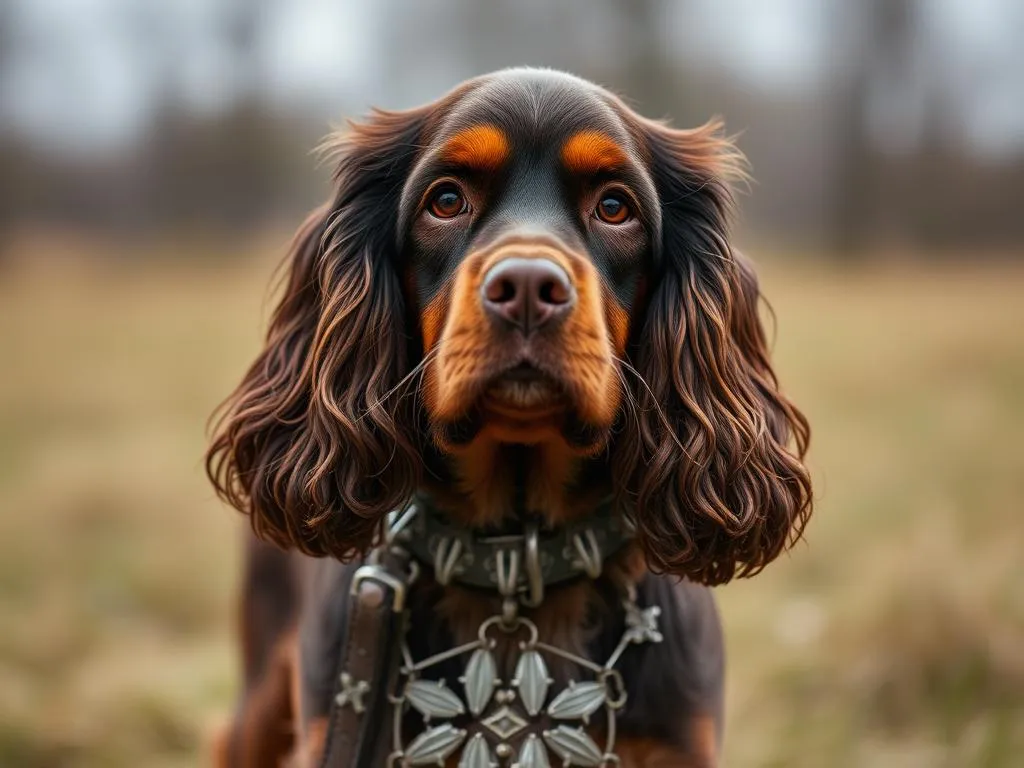
Introduction
The Cocker Spaniel is an endearing breed known for its friendly disposition and beautiful appearance. With its long, flowing ears and expressive eyes, this breed has won the hearts of many dog lovers around the world. Historically, Cocker Spaniels were bred to assist hunters in flushing game out of dense brush, showcasing their agility and keen sense of smell. Today, they remain popular family pets and companions, but the question arises: Is a Cocker Spaniel a working dog?
To answer this, we first need to understand what constitutes a working dog. A working dog is typically defined as a breed trained to perform specific tasks that assist humans, such as herding livestock, pulling sleds, or providing service to individuals with disabilities. Common examples include German Shepherds, Border Collies, and Labrador Retrievers. This article aims to explore whether Cocker Spaniels fit into the category of working dogs by examining their historical roles, physical characteristics, and modern capabilities.
Understanding Working Dogs
Definition of Working Dogs
Working dogs possess several defining characteristics that set them apart from other breeds. These dogs are generally intelligent, highly trainable, and eager to please their human counterparts. They thrive when given a job to do, whether it’s herding, guarding, or assisting people in need.
Different Types of Working Dogs
Working dogs can be categorized into various roles, including:
- Herding Dogs: Breeds like the Border Collie and Australian Shepherd excel at managing livestock.
- Service and Therapy Dogs: These dogs provide assistance to individuals with disabilities, helping them navigate daily life.
- Hunting and Sporting Dogs: Breeds such as Beagles and Retrievers assist hunters by locating and retrieving game.
- Search and Rescue Dogs: Trained to locate missing persons, these dogs play a crucial role in emergency situations.
Importance of Working Dogs
The significance of working dogs extends beyond their ability to perform tasks. They contribute to various industries, such as law enforcement, military operations, and therapy programs. Their presence can significantly enhance human safety and well-being, making them invaluable members of society.
The Cocker Spaniel Breed
Historical Background
The Cocker Spaniel has a rich history dating back several centuries. Originating from the United Kingdom, these dogs were primarily bred for hunting small game, particularly woodcock, which is how they received their name. Their development as skilled hunting companions has made them a staple in various hunting circles, where their agility and keen sense of smell are highly prized.
Physical Characteristics
Cocker Spaniels are medium-sized dogs, typically weighing between 20 to 30 pounds. They possess a silky coat that comes in various colors, including black, liver, and golden. Their long ears and large, expressive eyes contribute to their charming appearance. Cocker Spaniels are known for their energy and stamina, making them well-suited for active lifestyles.
Temperament and Behavior
Cocker Spaniels are renowned for their friendly and affectionate personalities. They are generally good with children and other pets, making them excellent family companions. Their playful nature is complemented by a strong desire to please their owners, which can be a significant advantage when training them for specific tasks.
Cocker Spaniels as Working Dogs
Traditional Roles
Historically, Cocker Spaniels have served as hunting companions, performing specific tasks such as flushing game out of dense cover for hunters. Their keen sense of smell and ability to navigate challenging terrains made them ideal for this role. They were trained to retrieve birds and other small game, showcasing their versatility as working dogs.
Modern-Day Working Capabilities
In contemporary settings, Cocker Spaniels can still excel in various working environments. While they may not be as commonly recognized as some other working breeds, they can perform tasks such as therapy work, assistance for individuals with disabilities, and even search and rescue operations. Their adaptability and eagerness to learn make them suitable candidates for various roles.
Limitations as Working Dogs
Despite their many strengths, Cocker Spaniels do have limitations that may affect their suitability for certain working roles. For example, they may not possess the same level of endurance as larger breeds when it comes to herding or search and rescue tasks. Additionally, there are misconceptions surrounding Cocker Spaniels as working dogs, often underestimating their abilities due to their popularity as family pets.
Cocker Spaniels in Different Working Roles
Hunting and Sporting
Cocker Spaniels are still valued in hunting scenarios today. Their effectiveness in locating and retrieving game makes them a favorite among hunters who appreciate their agility and keen instincts. Training a Cocker Spaniel for hunting tasks requires consistency, patience, and an understanding of the breed’s natural abilities.
Therapy and Service Work
Cocker Spaniels have also found their niche in therapy and service work. Their gentle demeanor and affectionate nature make them ideal candidates for providing emotional support to individuals in need. Numerous success stories highlight Cocker Spaniels working in hospitals, nursing homes, and schools, bringing joy and comfort to those they encounter.
Search and Rescue
While Cocker Spaniels may not be the first breed that comes to mind for search and rescue operations, they can still play a role in these scenarios. Their keen sense of smell allows them to locate people in various environments, although they may face challenges due to their smaller size compared to other search and rescue breeds. Their agility, however, can be an asset in navigating difficult terrains.
Training a Cocker Spaniel for Work
Basic Training Principles
Training a Cocker Spaniel begins with establishing a strong foundation in obedience. Basic commands such as “sit,” “stay,” and “come” are essential for any working dog. Socialization is equally important, as exposing them to various environments, people, and other animals helps them become well-rounded companions.
Specialized Training for Working Roles
For those looking to train their Cocker Spaniel for specific tasks, specialized training programs can be highly beneficial. Techniques may include scent training for hunting, social skills for therapy work, or agility training for search and rescue operations. Utilizing positive reinforcement methods will help motivate your Cocker Spaniel and enhance their learning experience.
Ongoing Training and Development
Continued training is vital for maintaining a Cocker Spaniel’s working instincts. Engaging activities, such as agility courses, scent work, or even obedience competitions, can keep them mentally stimulated and physically active. This not only enhances their skills but also strengthens the bond between the dog and its owner.
Pros and Cons of Owning a Cocker Spaniel as a Working Dog
Advantages
Owning a Cocker Spaniel as a working companion comes with numerous advantages. Their adaptability, eagerness to please, and natural intelligence make them excellent candidates for various roles. Additionally, their affectionate nature can provide emotional support to individuals in need, making them versatile working partners.
Disadvantages
However, potential owners should also consider the disadvantages of having a Cocker Spaniel as a working dog. They may require more grooming due to their long coats, and their smaller size may limit them in certain roles compared to larger breeds. Furthermore, they can be prone to certain health issues, which may affect their working capabilities.
Conclusion
In summary, while Cocker Spaniels may not be the first breed that comes to mind when considering working dogs, they certainly possess the characteristics and historical background that qualify them as such. Their traditional roles as hunting companions, combined with their modern capabilities in therapy and service work, showcase their versatility. However, potential owners should weigh the advantages and disadvantages carefully, considering their lifestyle and the specific working roles they envision for their Cocker Spaniel.
Overall, Cocker Spaniels can be considered working dogs, provided they are given the right training, socialization, and opportunities to thrive in their roles.









